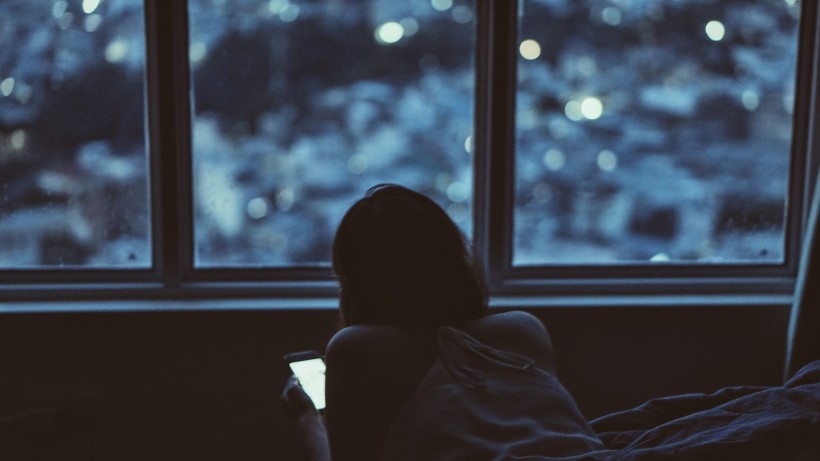Sleep is essential for the development and growth of newborns, young children, and teenagers. It is also vital because it allows your body and mind to recharge, allowing you to wake up feeling refreshed and alert. Your body will be healthy and able to defend itself against diseases if you get enough sleep, and your brain will be unable to function correctly if you do not get enough.
Sleep is necessary for good health. However, insomnia and sleep deprivation can result in mood swings and more severe illnesses.
Poor sleep affects one out of every three people, with stress, computers, and working from home frequently cited as factors.

Researchers recently found setting night mode on smartphone is not helping one to improve sleep.
A lousy night's sleep can cost you more than simply a foul mood and a lack of concentration.
Sleep deprivation regularly might put you at risk for a variety of significant medical disorders, including obesity, heart disease, and diabetes.
Doctors and medical professionals have also connected poor sleep and insomnia to a reduction in life expectancy.
How Do You Know if You Have Had Enough Sleep?
To function optimally, most people require roughly eight hours of sleep per night.
However, each person is unique, and some require more while others require less.
In general, if you wake up exhausted and spend the entire day fantasizing about taking a nap, you are not getting enough sleep.
According to the NHS, children of various ages require the following amount of sleep:
- Teenagers 13 to 18 years old - 8 to 10 hours;
- Children 6 to 12 years old - 9 to 12 hours;
- Children 3 to 5 years old - 10 to 13 hours including naps;
- Toddlers 1 to 2 years old - 11 to 14 hours including naps; and
- Babies 4 to 12 months old - 12 to 16 hours including naps
The US Centers for Disease Control and Prevention said adults require varying amounts of sleep depending on their age.
ALSO READ: Earworms Invading Human Brain When Awake Affects Sleep
According to the CDC, adults aged 18 to 60 should get seven or more hours of sleep per night.
Seven to nine hours of sleep per night is advised for adults aged 61 to 64.
Anyone over the age of 65 should get seven to eight hours of sleep per night.
How To Get A Good Night's Sleep
Assume you are trying to increase your sleep quality while also dealing with insomnia. In that scenario, it is recommended that you seek expert medical advice and treatment from a doctor. Business Northeast has shared a list of how to get a good night's sleep.
A relaxing sleeping atmosphere
Sleep is aided by a cool environment. To create a comfortable sleeping environment, choose comfy mattresses and non-sultry goods. Although it is recommended that you sleep better at 15 to 20 degrees Celsius, the temperature you choose is still determined by your feelings.
Stay away from light when sleeping
Melatonin is a hormone produced by the body during sleep. Electronic items' light has been shown to hinder melatonin generation in studies, therefore, you should avoid using the screen as much as possible before going to bed. Please try utilizing eye masks if your sleeping environment is not dark enough.
Keep up with your fitness routine
According to the National Sleep Foundation, those who exercise regularly have improved sleep quality. People will need to release tension during the epidemic, thus they will need to keep up their exercise routines.
Avoid caffeinated beverages
Stop drinking caffeinated liquids at least 6 hours before bedtime to achieve a decent night's sleep. Caffeine is found in coffee, tea, and chocolate, and it can interfere with sleep. One technique to increase the quality of sleep is to consume a glass of warm milk before going to bed.
Avoid consuming alcohol before going to bed
Before going to bed, some people drink alcohol. They believe that drinking alcohol will help them sleep. However, studies have shown that drinking alcohol makes it more difficult to fall asleep deeply.
Consistent sleeping patterns
You must relax both physically and psychologically before going to bed. To assist your brain and emotions in entering a state of relaxation, you can listen to light music, meditate, read, or take a bath. Also, try to go to bed and wake up at the same time every day.
Do not use drugs on a whim
Please seek expert's assistance if you are uncomfortable or have signs of sickness that interfere with your sleep. Please do not experiment with drugs on your own.
RELATED ARTICLE: Pandemic Stress-Induced Brain Fog is Making People Forgetful and Confused, Here's What Experts Say
Check out more news and information on Medicine and Health on Science Times.














